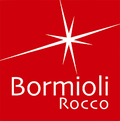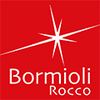Why Wine Storage Matters
The flavors and aromas of wine are delicate and complex, and improper storage can quickly turn your investment into vinegar. Storing wine the right way preserves its quality and even allows it to develop more depth and character over time. Factors like temperature, humidity, and light exposure are crucial to the storage process. But don't worry—these tips will ensure your wine remains perfect from the cellar to the glass.

Exclusiva 18 oz. Red Wine Glass
Temperature: The Goldilocks Rule
When it comes to storing wine, temperature is key. Wine that is too warm can age prematurely, causing it to lose flavor. On the flip side, wine that is too cold can slow the aging process and dull the taste.- Ideal Temperature: The sweet spot for most wines is between 55°F and 58°F (13°C-15°C). This temperature range allows the wine to age gracefully without any chemical imbalances.
- Avoid Extremes: Never store wine in a place where the temperature fluctuates drastically, like next to a window or an oven. Stability is important for wine longevity.
Humidity: Keeping the Corks Healthy
Humidity is another important factor in wine storage. Too much moisture can encourage mold growth, while too little can cause the cork to dry out, allowing air to seep into the bottle and spoil the wine.- Optimal Humidity Level: The ideal humidity for wine storage is around 70%.
- Pro Tip: If you’re storing wine for a long period, invest in a hygrometer to measure the humidity and a humidifier or dehumidifier to maintain the right level.
Darkness: Protect Your Wine From Light
Light, especially ultraviolet (UV) light, can break down the compounds in wine and lead to premature aging or "lightstrike," a condition that gives wine an unpleasant odor.- Dark Spaces Are Best: Store wine in a dark place, such as a cellar, cabinet, or wine fridge, to keep it safe from harmful light exposure.
- Colored Glass Bottles: Wines that come in darker bottles have some protection from light, but they should still be stored in a dark environment.

InAlto Tre Sensi 18.5 oz. Red Wine Glass
Storing Wine Bottles: Horizontal Is Best
Many wine bottles are corked, and storing these bottles horizontally ensures that the cork stays in contact with the wine. This keeps the cork moist and prevents it from drying out and shrinking, which could allow air to enter the bottle and spoil the wine.- Pro Tip: If your wine has a screw cap, horizontal storage is not necessary, but it’s still a good idea to store all your bottles this way for consistency.
How to Age Wine
Not all wines are meant for aging. As a general rule, high-acid and high-tannin wines age better than lighter, low-tannin varieties. Full-bodied red wines like Cabernet Sauvignon, Syrah, and Bordeaux can age beautifully for 10–20 years, while lighter reds and most white wines are best consumed within 1–3 years of purchase.



